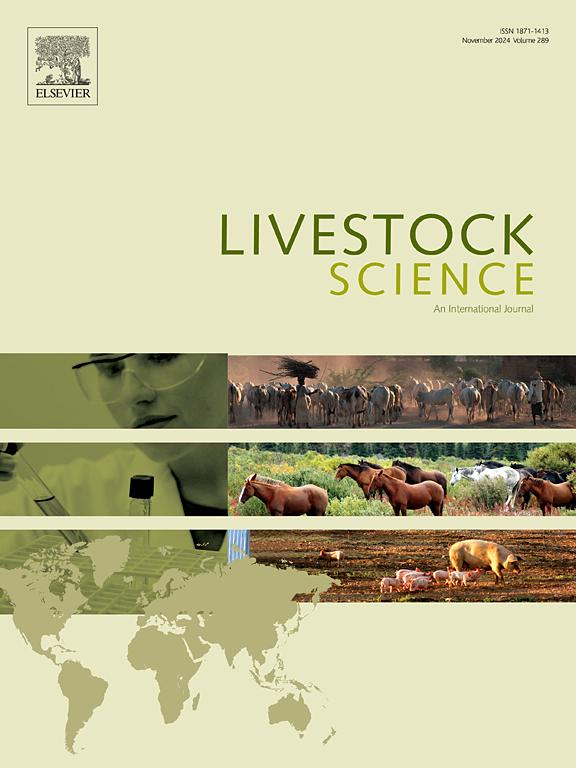家畜物种有害变异编目:动机、应用和挑战
IF 1.9
3区 农林科学
Q2 AGRICULTURE, DAIRY & ANIMAL SCIENCE
引用次数: 0
摘要
通过改变基因或其调控元件的功能,有害变异可能通过引发疾病、生殖失败和其他不利病理状况对个体的生存能力产生负面影响。到目前为止,在人类中已经描述了6000多种单基因疾病,并且已知有4925种基因的表型引起突变,但在家畜中仅报道了数百或数十种(取决于物种)孟德尔疾病,至少有一种已知的可能的因果变异。更重要的是,影响对复杂疾病易感性的变异在农场动物中大多是未知的。这一证据和其他证据表明,尽管它对动物生产部门的盈利能力产生了负面影响,但迄今为止只发现了非常少量的有害变异。在这种情况下,构建具有功能注释和预测价值的综合有害变异目录对于能够估计优秀育种者的个体遗传负荷,作为选择标准的信息至关重要。有害变异的分子特征也将非常有用,有助于阐明复杂的生物现象,如近亲繁殖抑制、传动比扭曲、驯化和对孟德尔和复杂疾病的易感性,等等。在这里,我将讨论建立此类目录的动机和当前的挑战,以及克服这些挑战的潜在途径。本文章由计算机程序翻译,如有差异,请以英文原文为准。
Cataloguing deleterious variants in domestic animal species: motivation, applications and challenges
By altering the function of genes or their regulatory elements, deleterious variants may have a negative impact on the survivability of individuals through the elicitation of disease, reproductive failure and other adverse pathological conditions. While more than 6000 single-gene disorders have been described so far in humans and phenotype-causing mutations are known for 4,925 genes, only a few hundred or tens (depending on the species) of Mendelian diseases with at least one known likely causal variant have been reported in domestic animals. Even more, variants affecting susceptibility to complex diseases are mostly unknown in farm animals. This and other evidence suggest that, despite its negative impact on the profitability of the animal production sector, just a very small number of deleterious variants have been discovered so far. In this context, the construction of comprehensive catalogues of deleterious variants with functional annotations and predictive value would be critical to be able to estimate the individual genetic load of elite breeders, an information that could be used as a selection criterium. The molecular characterization of deleterious variants would be also extraordinarily useful to shed light on complex biological phenomena such as inbreeding depression, transmission ratio distortion, domestication and susceptibility to Mendelian and complex diseases, to mention a few. Here I discuss the motivation and current challenges to build such catalogues as well as the potential avenues to overcome them.
求助全文
通过发布文献求助,成功后即可免费获取论文全文。
去求助
来源期刊

Livestock Science
农林科学-奶制品与动物科学
CiteScore
4.30
自引率
5.60%
发文量
237
审稿时长
3 months
期刊介绍:
Livestock Science promotes the sound development of the livestock sector by publishing original, peer-reviewed research and review articles covering all aspects of this broad field. The journal welcomes submissions on the avant-garde areas of animal genetics, breeding, growth, reproduction, nutrition, physiology, and behaviour in addition to genetic resources, welfare, ethics, health, management and production systems. The high-quality content of this journal reflects the truly international nature of this broad area of research.
 求助内容:
求助内容: 应助结果提醒方式:
应助结果提醒方式:


